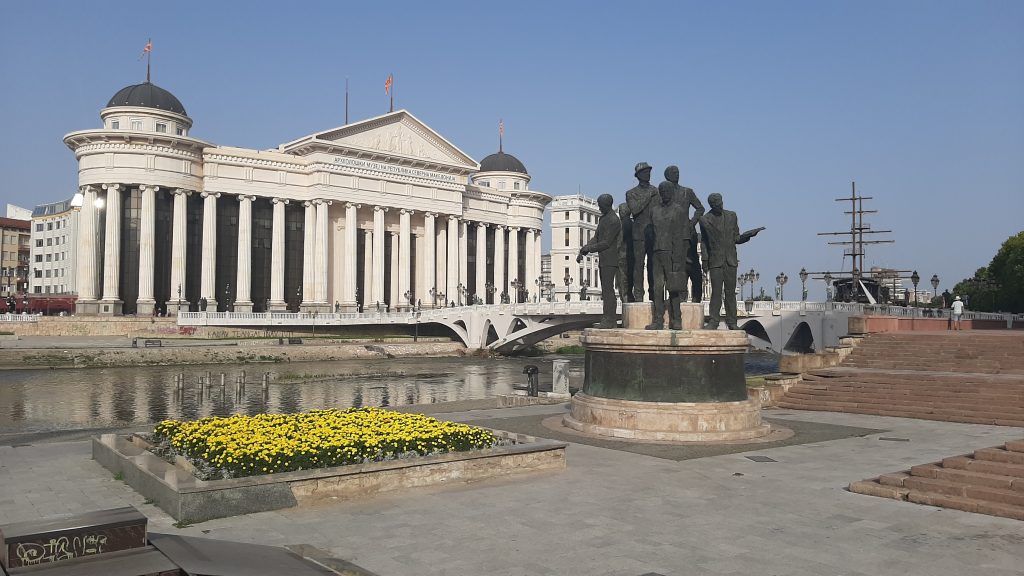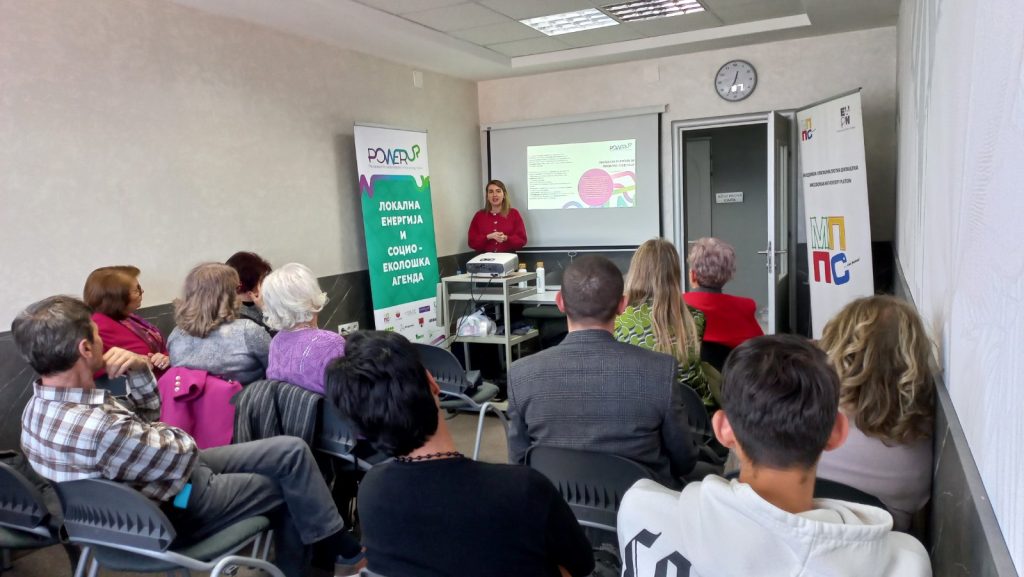Article by Marine Cornelis, Next Energy Consumer
In North Macedonia, the energy transition begins with conversation, not construction. “The biggest problem establishing energy communities here is not having existing communities,” says Biljana Dukovska, programme manager at the Macedonian Anti-Poverty Platform (MPPS). MPPS is the NGO that supports several towns in North Macedonia in building capacity around renewable energy and energy efficiency. Cities like Štip, Valandovo or Centar (Skopje) acted as observers in the project with the aim to prepare their own approach inspired by the pilot activities. Biljana told us their story.
“People are not tightly connected, even with civil society. So first, we had to build temporary communities of practice.” The POWER UP project gave Biljana and her team that opportunity. They organised three-day workshops in Centar (Skopje), Štip, and Valandovo. Municipal staff, teachers, NGOs and citizens came together to talk about energy poverty as part of daily life. “At the beginning, people were confused – they asked why they should listen,” Biljana recalls. “By the third day, they were sketching what a local energy market could look like.”
Each region brought its own reality. In urban Skopje, residents live in multi-apartment blocks with little continuity because “people are changing apartments all the time.” In Štip, where much private money went into wind park investments, “citizens receive nothing from these investments.” And in Valandovo’s farming villages, “most citizens are older, and their main income is agriculture. They have never heard about renewables.” Teachers there became unexpected champions: “They realised their schools are community centres and can be used in many ways.”

The team from MPPS also worked with vulnerable groups such as Roma communities and newly housed homeless families. “We wanted to see if they even know what paying an electricity bill means,” Biljana explains. “Because the municipality used to pay their bills, they were not prepared for the change.”
Throughout the process, Biljana noticed a deep legacy of distrust. “We were a socialist country. People still think energy is the state’s responsibility and should be cheap,” she says. “They believe that if they organise and invest together, someone will come and take that from them. They don’t believe collective action leads to a better life.”
Younger generations are not immune. “Many live with their parents until 35 or 37,” she notes. “They are not in a position to invest, and those who can are not interested in democratisation. They live comfortably, mindless of energy problems”. This mindset makes local mediators essential. “People will not start anything by themselves because of the trust issue. But if you have somebody from outside – a facilitator, an expert – they feel safe.”
Removing challenges in North Macedonia step-by-step
The POWER UP capacity-building sessions also revealed structural gaps. “Municipalities lack staff,” Dukovska says. “Sometimes there is only one inspector who must check every PV installation. When that person is ill, nothing moves.” Yet, progress is visible. With support from Friedrich-Ebert-Stiftung Skopje, the municipality of Centar opened the country’s first Energy Office, a small but symbolic milestone.

Still, motivation remains low as electricity stays affordable. “Bills are about 50 euros per family. People don’t see a reason to invest [in community energy],” Biljana admits. “Maybe when the problem is near the door, they will.”
What keeps Biljana and her team going is patience. “The first word you learn here is ‘no’, but ‘no’ should never stop you thinking,” she laughs. With municipal elections ahead, MPPS plans to turn awareness into advocacy: “We will ask candidates to sign a pledge to support community energy if they become mayors again.”
Contrary to other pilots, no renewable energy production plant has been developed. Looking back, Biljana reflects on what it meant to be an observer, not having had physical infrastructures developed during the time of the project: “We were not prepared to have a pilot. We have been preparing the ground. We opened a window, and the story should continue.”
